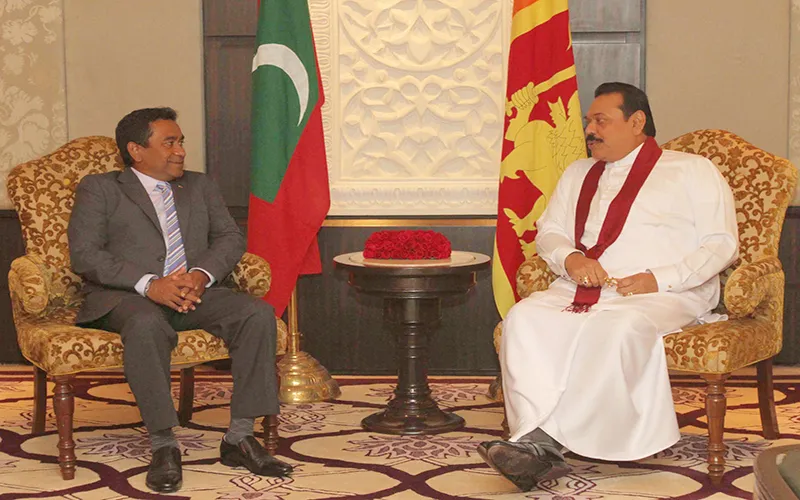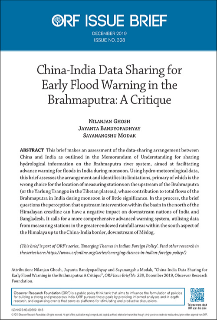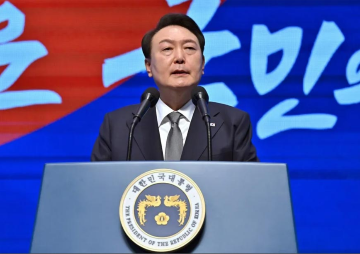With no signs of any instant or immediate resolution to the reigning political confusion on the streets, Maldives is slowly and steadily slipping into the 'pressure cooker' mode, with no clear sign of what awaits the troubled nation next. Independent of the cause-and-effect factor, which seems to favour President Abdulla Yameen's regime just now, there is no indication of who would blink first, how far - and, how far enough.
Throughout, the Government has been on its aggressive best - hitting back at all segments of the international community, at every turn. At the very outset, it put the Commonwealth on the defensive by repeating a tested tactic of another time and another regime, of willing to walk out of the loose-knit consortium of erstwhile British colonies. It went a step further in tackling Amnesty International, as speaking for the language of the Opposition Maldivian Democratic Party (MDP), nearer home.
More recently, it pooh-poohed the European Union's non-binding resolution for member-nations on 'tourism advisory' to their citizens, saying it was on 'misconceptions and mis-representation'. Better or worse still, President Yameen's official spokesman and also that of his Progressive Party of Maldives (PPM) have described as 'personal', US Secretary of State John Kerry's Colombo observations on Maldivian democracy, only a day after the Opposition's 'to-the-end' May Day rally in capital Male.
Maldivian government-related spokesmen claimed that the US had not communicated any official view on the ongoing developments in the country. India, the nation's closest and largest neighbour, has been maintaining a strategic silence, after reacting strongly to the 'manhandling' of arrested former President Mohammed Nasheed on the trial court premises. Nasheed, as may be recalled, has since been serving a 13-year jail term for the 'terror' abduction of Judge Mohamad Abdulla. China, supposedly a friend and ally of the Yameen Government, particularly after President Xi Jinping's visit last year, has been maintaining stoic silence, all along. But there need be no doubt, which side of the political divide in Maldives would it back, if and when push came to the shove. Yet, there is no denying the possibility of China wantonly shying away from taking a position on Maldives, in the aftermath of what had happened in neighbouring Sri Lanka with and after the 8 January presidential polls in that country.
Call for negotiations
Even while passing an 'anti-government' resolution at distant Brussels, an EU delegation meeting with Maldivian political party leaders, called for internal negotiations, to sort out the political issues. In a way, the EU could be construed as playing hot and cold at the same time, but in calling for negotiations, it was only reflecting the views of the united Opposition.
Through the current series of protests, the Opposition has called upon the Government to open negotiations with them, so that President Yameen could continue in office undisturbed for the full five-year term, due to conclude only in November 2018. The MDP, which started off with a unilateral protest, calling for President Yameen to hand over power to Jumhooree Party leader Gasim Ibrahim, without any 'constitutional authority' to back its demand, had announced plans to set up a negotiations team.
With JP being prompted/provoked into quitting the Government coalition after a series of 'political humiliations', the MDP promptly named a two-party negotiations team, but to no avail. As has been the wont with pre-democracy Maldives too - or even afterward - the ground leadership of the Opposition protests has since passed on to religion-centric Adhaalath Party's (AP) Sheikh Imran Abdulla. But the Yameen leadership has been playing hide-and-seek on Imran's repeated calls for a 'negotiated settlement'.
Reigning confusion
Not only has the composition and leadership of the Opposition protests changed over the past four/five months, even the name of the campaign-call has been changing, by the hour. Originally, the protest was 'In the defence of democracy'. Today, it's a campaign 'against brutality'. In terms of 'brutality', each side blames the other. The Opposition has alleged large-scale police brutality on 'May Day rally' participants. The Government side, starting with former President Maumoon Abdul Gayoom, have referred to a video-footage of (alleged) May Day protestors, brutalising a uniformed policeman, beating and kicking him in the middle of Male.
Independent of international pressure and perception, prima facie, the Yameen leadership seems to be on a stronger wicket, nearer home, particularly in terms of retaining and wresting all initiatives. It's yet a two-edged sword, considering in particular the proven electoral popularity of all those ranged against his political leadership on the one hand, and the inevitable impact of internal and international pressures taking their toll on the ongoing 'investment reforms', on which President Yameen seems to be basing his projected popularity in the run-up to 2018.
Despite the loud protests from the Opposition, strengthened in terms of new allies at every crucial turn over the past months, there is no clarity of purpose or process to reach there. Two major rallies, including the one on May Day, have ended without any 'proven result', which the organisers had projected as 'goal-making'. Published media accounts - which gave widely varying figures for the number of participants, -- have clearly indicated that the organisers on both occasions lacked ideas, and did not give any direction or goal to the agitated participants, who seem to be getting increasingly frustrated and possibly demoralised, too.
The reigning confusion in the Opposition ranks has also got repeatedly reflected in the way the strongest of the nation's parties in the MDP voluntarily handing over the baton, first to JP's Gasim Ibrahim, and more recently to AP's Sheikh Imran. While it may be a tactic to have them all feel wanted by the MDP, a growing feeling in the party cannot be discounted. Such a feeling could relate to the possible unwillingness of the second-line to have one among them to lead their campaign, in the absence of President Nasheed, who is both in prison and is also disqualified under a hasty law, to lead the party that he had contributed to founding.
Not only does President Nasheed continue to be in prison, after the May Day rally, the Government has also arrested all senior leaders of the Opposition, including AP's Sheikh Imran and MDP chairperson Ali Waheed. If JP's Gasim Ibrahim has not been arrested, it was only because he did not participate in the rally, the like of which he had headed on the earlier occasion only weeks ago. There is all-round sympathy in the Opposition for his predicament - of being slapped with a revenue dues claim of an astronomically high $ 90 m. JP's vice-chairperson Ameen Ibrahim however was among those arrested for leading the May Day rally.
Honourable way out
The Yameen leadership seems to be convinced still that there is an all-round conspiracy, possibly involving sections of the international community, to have him ousted from office, and in the name of 'democracy'. There also seems to be internal evidence that the Yameen camp is convinced about the twin possibilities and possible linkages. On the domestic front, the impatience of the Opposition, particularly the MDP leadership, to come back to elected power earlier than 2018, began showing. To the international community, or sections thereof, the ruling PPM combine and the government leadership have made the unmentioned 'China linkage'.
Like with all political negotiations of the kind, the Maldivian problem today may also include the impossible situation in which the Opposition has no way of proving to the Yameen leadership that their sincerity on commitment to let him continue in power undisturbed. Their burden is even greater when weighed against the real-time benefits in terms of possible freedom for President Nasheed and the rest, and also freedom for the former to contest future elections.
In doing so, partners in the Opposition alliance - individually and collectively - may end up having to prove why they were at it, in the first place. Finding a honourable way out is a part of the problem, and of the solution. Sections of the international community should help the Maldivian stake-holders to address such issues, not stopping with using a broad-brush approach in the name of democracy.
For its part, the Yameen leadership should also look around to learn its lessons from neighbouring Sri Lanka. There, sections of the international community, which had displayed across-the-board patience and perseverance, in the name of accountability and democracy - and not necessarily in that order. Finally, they got what they wanted, and in a way they would not be blamed, as was in Afghanistan and Iraq.
(The writer is a Senior Fellow at Observer Research Foundation, Chennai Chapter)
The views expressed above belong to the author(s). ORF research and analyses now available on Telegram! Click here to access our curated content — blogs, longforms and interviews.




 PREV
PREV


